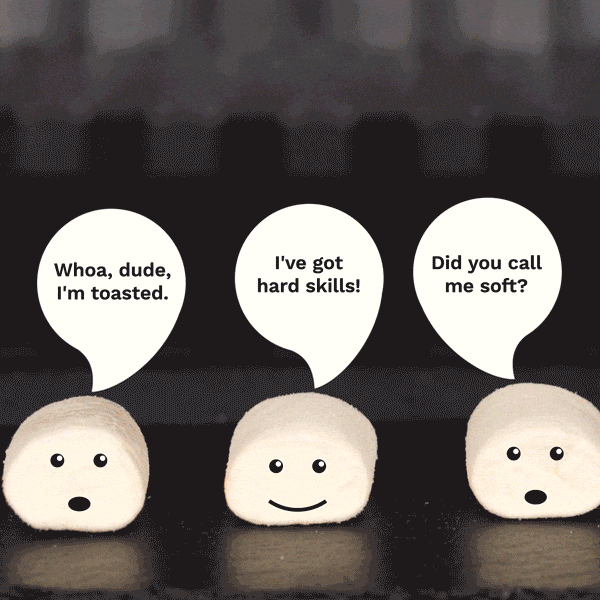Soft is for Babies’ Bottoms, Marshmallows & Leather. Not Communication!
I die a little inside every time I hear someone talk about the “soft skill” of communication. This has been common vernacular in business, but it’s time for this to change.
Referring to communication as a “soft skill” undermines the importance of listening, speaking and building understanding. This implies that communication is less crucial or valuable compared to “hard skills” like technical expertise or knowledge. But, effective communication is a fundamental aspect of personal, professional and societal success. It influences relationships, teamwork, leadership, negotiation and problem-solving.
A doctor is but a practitioner without a bedside manner. A building foreman stands alone without a team that follows her lead. An attorney fails to win an argument without the skills of persuasion and relevance. Communication is not secondary to their success; it is essential!
Downplaying the significance of communication can lead to undervaluing the skills required for just about any job.
Communication is far from being “soft” in the sense of being easy or effortless. It requires verbal and non-verbal cues, active listening, empathy, clarity, adaptability and cultural awareness. Communication requires constant learning, practice and refinement. In fact, communication is a “science” — which makes it sturdy in my book. It’s the science of creating meaning, which is complex and requires a number of hard technical tools that can be practiced and improved upon by those at any level of skill. Communication is not an art practiced only by “people people.”
If we can begin to reframe communication as a vital skill set, individuals in every industry and practice are more likely to invest time and effort in developing and enhancing their communication skills. Effective communication is consistently ranked as one of the most sought-after skills by employers across industries. Successful professionals excel not only in their specific domain but also in effectively conveying their ideas, collaborating with others and building relationships.
Communication is a “critical skill” and we should emphasize this to prioritize it alongside other essential abilities through our educational, internship and workforce development programs. By doing this, more people will acknowledge the significance of communication in various aspects of society and indirectly influence better relationships at every turn.

